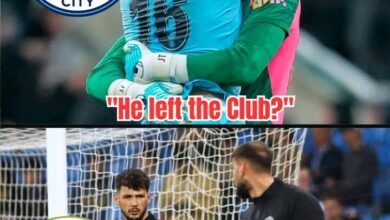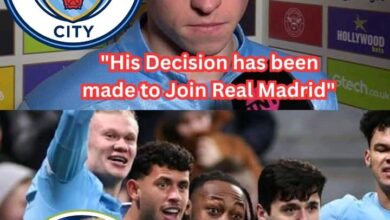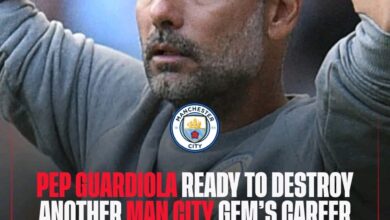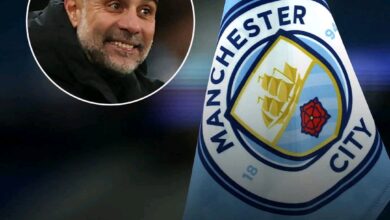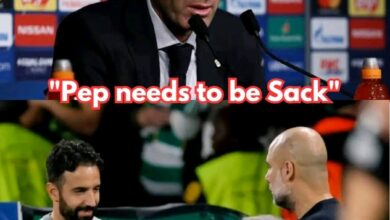Carragher reveals what Pochettino told him about Tottenham new signing in Interview

Mauricio Pochettino, the manager of Chelsea, was recently observed intently focused before the Premier League match between Aston Villa and Chelsea FC at Villa Park on April 27, 2024. His demeanor, captured in a photograph by Darren Walsh, reflected the intensity and dedication he brings to his role at Chelsea. This moment, symbolic of the challenges and responsibilities inherent in managing a top-tier football club, offers a glimpse into Pochettino’s ongoing journey in the Premier League.
In a separate development, former Liverpool defender and football pundit Jamie Carragher has shared insights into a private conversation he had with Pochettino regarding Tanguy Ndombele, the former Tottenham Hotspur midfielder. Carragher, in a discussion on The Overlap, expressed the view that José Mourinho, another former Tottenham manager, had correctly assessed Ndombele
assessing the player’s suitability for the demands of Premier League football. Jamie Carragher’s analysis further adds to the discourse, offering a perspective that bridges the viewpoints of the two managers, reflecting the multifaceted nature of evaluating talent in a sport as dynamic and unpredictable as football.
Pochettino’s belief in Ndombele underscores a common challenge in football management: the balance between nurturing a player’s potential and recognizing when that potential may not translate into consistent performance. Pochettino, known for his emphasis on developing young talent and his ability to get the best out of his players, likely saw in Ndombele a raw talent that could be honed into something special. His confidence in the player was perhaps rooted in his track record of successfully developing players like Harry Kane, Dele Alli, and Son Heung-min during his time at Tottenham.
However, the case of Ndombele also reveals the limitations of this approach. Talent alone is often not enough to succeed at the highest level; it must be accompanied by the right mentality, work ethic, and adaptability. Ndombele, despite his skill, seemed to struggle with these aspects, which are crucial in a league as physically and mentally demanding as the Premier League. His inability to consistently meet these demands led to frustration among fans and managers alike.
Mourinho, known for his more direct and sometimes harsh managerial style, perhaps recognized this earlier than Pochettino. His decision to publicly criticize Ndombele was likely an attempt to motivate the player, to push him to reach the levels of commitment and intensity required. Unfortunately, this approach did not yield the desired results, and Ndombele continued to underperform, leading to his eventual exit from the club.
The departure of Ndombele from Tottenham this past summer marked the end of what many would consider an unfulfilled potential. When he arrived from Lyon, he was Tottenham’s record signing, and expectations were high. Fans and pundits alike saw him as the player who could bring creativity and dynamism to Tottenham’s midfield. However, as the years passed, it became clear that Ndombele was not living up to these expectations. Injuries, inconsistent performances, and questions about his attitude all contributed to his eventual release from the club.
Ndombele’s move to Nice provides him with a fresh start, an opportunity to rebuild his career away from the pressures of the Premier League. For Tottenham, his departure allows the club to move on and perhaps reflect on the lessons learned from this transfer. It serves as a reminder of the importance of not only scouting a player’s technical abilities but also understanding their personality, motivations, and ability to adapt to new challenges.
For Pochettino, the experience with Ndombele is likely a valuable lesson in the complexities of player management. While his belief in nurturing talent remains a core part of his philosophy, the Ndombele saga may have taught him the importance of also recognizing when a player may not be the right fit for a particular environment. This balance between patience and pragmatism is something that all top managers must navigate.
As for Mourinho, his handling of Ndombele can be seen as part of his broader approach to management, which often involves challenging players to meet his high standards. While his methods can be controversial, they are rooted in a deep understanding of what it takes to succeed at the highest level. In Ndombele’s case, Mourinho’s assessment proved to be more accurate, though it did not result in the player’s improvement as hoped.
Jamie Carragher’s reflections on the situation add a valuable outside perspective. As a former player and now a pundit, Carragher brings a balanced view, recognizing both the talent Ndombele possessed and the reasons for his ultimate failure to make a significant impact at Tottenham. His comments also highlight the sometimes subjective nature of football analysis, where different observers can have varying interpretations of the same events.
In the broader context of football, the story of Tanguy Ndombele is not unique. Many players arrive at top clubs with high expectations only to find that they cannot meet the demands placed upon them. These situations often involve a complex interplay of factors, including the player’s mindset, the club’s environment, and the manager’s approach. In Ndombele’s case, all of these elements played a role in shaping his time at Tottenham.
As Tottenham Hotspur continues to evolve under new management, the lessons from the Ndombele era will likely inform the club’s future decisions. For the fans, while there may be some disappointment in how things turned out, there is also an understanding that not every transfer will be a success. The focus now is on the future and how the club can continue to build a squad that can compete at the highest level.
Mauricio Pochettino, now managing Chelsea, will also carry the lessons from his time at Tottenham into his new role. His experience with Ndombele, while challenging, is part of the broader journey of any manager working at the top level of football. It is through these experiences that managers refine their strategies, develop their philosophies, and ultimately, find success.







